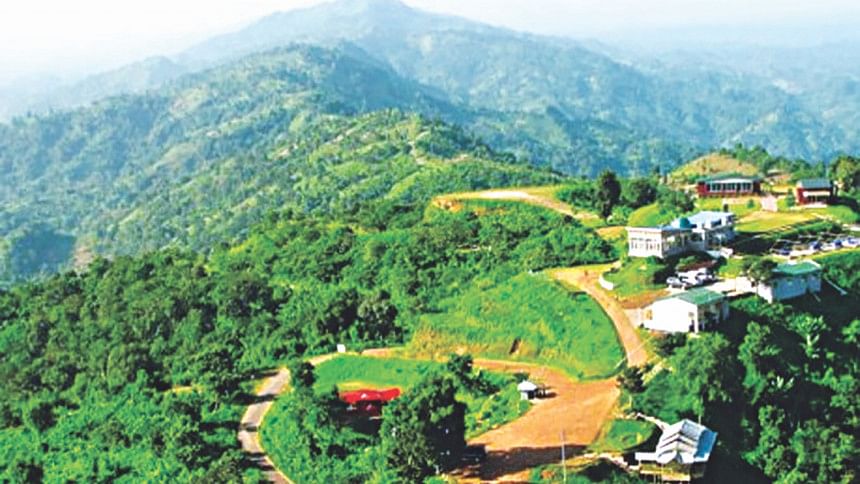CHT Accord Anniversary: 24 years on, legal tangles still remain

With the historic Chittagong Hill Tracts Peace Accord stepping into its 24th year today, some legal complexities involving the issues of CHT Regional Council are still now awaiting the final settlements.
Since its formation in 1999, two years after the accord was signed on December 2, 1997, the CHT Regional Council has been functioning under the leadership of Jyotirindra Bodhipriya Larma, popularly known as Santu Larma.
Two appeals were filed with the Supreme Court 10 years back challenging a High Court verdict that declared the CHT Regional Council illegal and unconstitutional.
But the SC's Appellate Division could not settle the issues because the parties concerned of the case have not apparently taken any extensive move for hearing the appeals for their disposal.
The apex court is scheduled today to hear the review petitions filed challenging its judgment. The court on November 22, 2016, declared the CHT Regulation-1,900 constitutionally valid and effective.
The CHT Regulation-1,900 had been issued by the then British colonisers in order to protect the diverse culture and its indigenous inhabitants from foreign immigrants. This regulation came into force on May 1, 1900, giving special status to the CHT area.
Following two writ petitions filed by two private companies -- Rangamati Food Products Ltd and Wagachara Estate Ltd -- the HC had several years back declared the CHT Regulation-1,900 as a "dead law".
Following an appeal filed by the state challenging the HC verdicts, the Appellate Division on November 22, 2016, declared the CHT Regulation- 1,900 constitutionally valid and effective.
Barrister Imran A Siddik, a lawyer for Rangamati Food Products Ltd and Wagachara Estate Ltd, said the contents of the review petitions and the appeals filed in connection with CHT issues are related to each other.
The CHT Regulation-1,900 is a substantial law regulating the administration of the tribal area which is running under the CHT Regional Council formed under the CHT Regional Council Act-1998, he added.
The lawyer said they would seek adjournment from the apex court today on hearing of the review petitions as they are not prepared for placing arguments on the issue at this moment.
Following two other writ petitions filed by Bangalee settler M Badiuzzaman and SC's pro-Jamaat-e-Islami lawyer Tajul Islam on April 13, 2010, the HC declared the CHT Regional Council Act-1998 illegal and unconstitutional.
In the verdict, the HC said the unitary character of the state, which is the basic feature of the constitution, has been hampered due to its formation. The council can now run since the HC verdict has been halted following a stay order from the Appellate Division.
In 2011, the state and the CHT Regional Council filed two separate appeals with the SC challenging the HC judgment, saying that the CHT Regional Council is a statutory authority to facilitate the functions of three hill district councils and was formed in line with the constitution.
The provisions of the CHT Regional Council Act-1998, which have been declared unconstitutional by the HC, are actually protected by the constitution, as it provides for affirmative action in favour of a disadvantaged section of the population, they said in the appeals.
On March 3, 2011, the Appellate Division upheld its chamber judge's stay order and allowed the government and Santu Larma to move separate appeals before it against the HC verdict.
The appeals are still now pending with the apex court for their hearing.
Attorney General AM Amin Uddin earlier told this newspaper that his office would place arguments before the Appellate Division in support of the appeals when these would come up before the apex court serially.

 For all latest news, follow The Daily Star's Google News channel.
For all latest news, follow The Daily Star's Google News channel. 



Comments